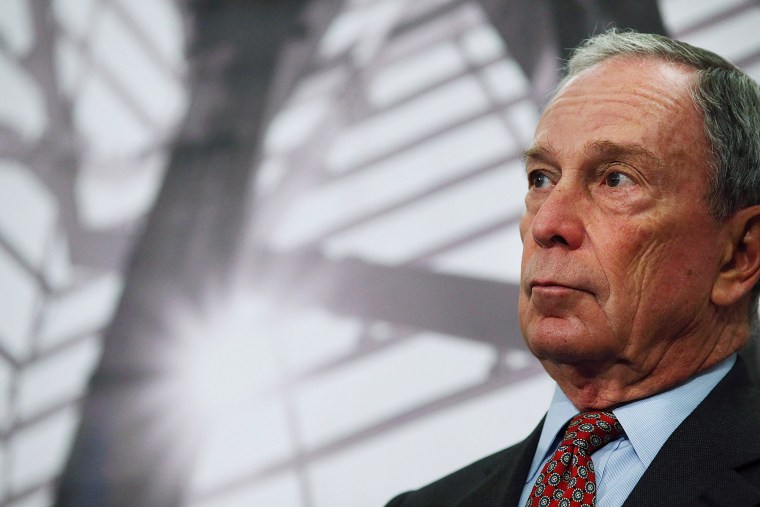Mr. Bloomberg, 73, has already taken concrete steps toward a possible campaign, and has indicated to friends and allies that he would be willing to spend at least $1 billion of his fortune on it, according to people briefed on his deliberations who spoke on the condition of anonymity because they were not authorized to discuss his plans. He has set a deadline for making a final decision in early March, the latest point at which advisers believe Mr. Bloomberg could enter the race and still qualify to appear as an independent candidate on the ballot in all 50 states. He has retained a consultant to help him explore getting his name on those ballots, and his aides have done a detailed study of past third-party bids. Mr. Bloomberg commissioned a poll in December to see how he might fare against Mr. Trump and Mrs. Clinton, and he intends to conduct another round of polling after the New Hampshire primary on Feb. 9 to gauge whether there is indeed an opening for him, according to two people familiar with his intentions.
New York's Bloomberg eyes presidential race (again)
Just like clockwork, it's a presidential election year, which means it's time for Michael Bloomberg to think about another national third-party campaign.

When political conversations turn to New York City billionaires running for the White House, we may have to get used to the phrase, "No, not that one, the other one."
In 2008, Michael Bloomberg, the Democrat-turned-Republican-turned-Independent former mayor, flirted for a while with a third-party presidential campaign. He decided against it. In 2012, he went through the process all over again, and reached the same conclusion.
No one should be surprised, then, that the New York Times reported over the weekend that the former mayor is flirting with the possibility of a national run once more, to the point that he's already "instructed advisers to draw up plans."
Note, neither Bloomberg nor his team have released the results of that poll.
And that's likely because the results weren't encouraging. If Bloomberg is under the impression that there's broad clamoring for his candidacy, with millions eagerly anticipating his entry into the race, he's going to be disappointed.
All things considered, the Times article has all the qualities of a trial balloon. If there's no real demand for a Bloomberg candidacy, maybe Team Bloomberg can create some interest with a carefully placed, well-timed leak. There's no real risk involved.
But the existing lack of demand should probably be a hint about whether or not this is a good idea.
Just as important is the fact the point of such a candidacy remains elusive. The issues the New Yorker takes the most seriously -- preventing gun violence and combating climate change, for example -- are already well represented by the Democratic field, making his platform, such as it is, unnecessary.
And for Democrats, dangerous. If Bloomberg has no realistic chance of actually winning a national election, his candidacy would have one obvious effect: splitting the American mainstream and center-left, making a Republican victory quite easy.
It's why Donald Trump -- if no one else -- seemed very excited over the weekend about the idea of a Bloomberg campaign.
The GOP frontrunner probably shouldn't get his hopes up. If recent history is any guide, the former mayor's interests will shift in new directions before long.